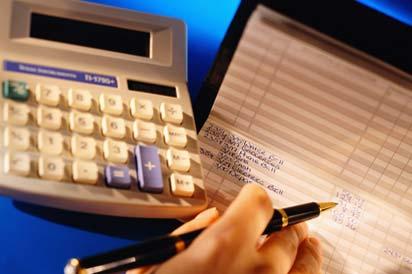There’s nothing more expensive than spending money you don’t have. That, of course, is a lesson you might learn the hard way if you carry a balance on a high-interest credit card. But spending beyond your means can be a pricey proposition even with a debit card.
Bankrate.com released its annual checking survey Monday, assessing the fees charged for various services associated with checking accounts. Perhaps the most notable finding was that only 39% of banks offer totally free checking with no minimum balance requirements, down from 45% in 2011. (With that said, customers have become adept at finding ways to get their checking services for free checking, with 59% of Americans recently reporting that they pay nothing for their checking account.)
But in addition to those findings, the checking account survey contained a good reminder to banking customers: The costliest thing you can do with your checking account is to overdraft your account while signed up for overdraft protection.
Sure, your wallet can suffer death by a thousand cuts if you get charged for monthly maintenance fees (which average $5.48 a month, up 25% over last year, according to Bankrate) or use out-of-network ATMs ($2.50 to the ATM owner and $1.57 to your own bank, on average). But the biggest single fee remains the dreaded nonsufficient funds (NSF) fee, which now averages $31.26.
A new study by Moebs Services found that “overdrafts made a strong comeback,” increasing 2.1 percent to $31.5 billion for the year ending June 30, 2012, from $30.8 billion in June 30, 2011. The $700 million bump up came from an increase in price and a decrease in the number of overdrafts.
The category of fee includes both bounced checks and overdraft protection on your debit card, but the takeaway is the same: If you try to spend money you don’t have, your already meager balance will get hit hard. At Bank of America, for instance, bouncing a check or requiring the use of overdraft protection will each cost you $35.
The good news is that you’ll need to opt in to the costly overdraft protection service (unless it’s a store credit card), so if you’re charged such a fee it’s because you chose the sting of the fee over the embarrassment of having your debit card turned down. Still, with consumers expressing confusion over their banks’ fee structures and banks ordering transactions in such a way as to maximize their collection of such fees, people continue to get hit with the mother of all fees.
Matt Brownell Contributing writer for Credit.com. Matt previously covered retail and personal finance for MainStreet.com, TheStreet's consumer news outlet. Now a freelance business journalist based in New York City, his work has been featured on Fox Business, Yahoo, Newsweek and Bankrate.








